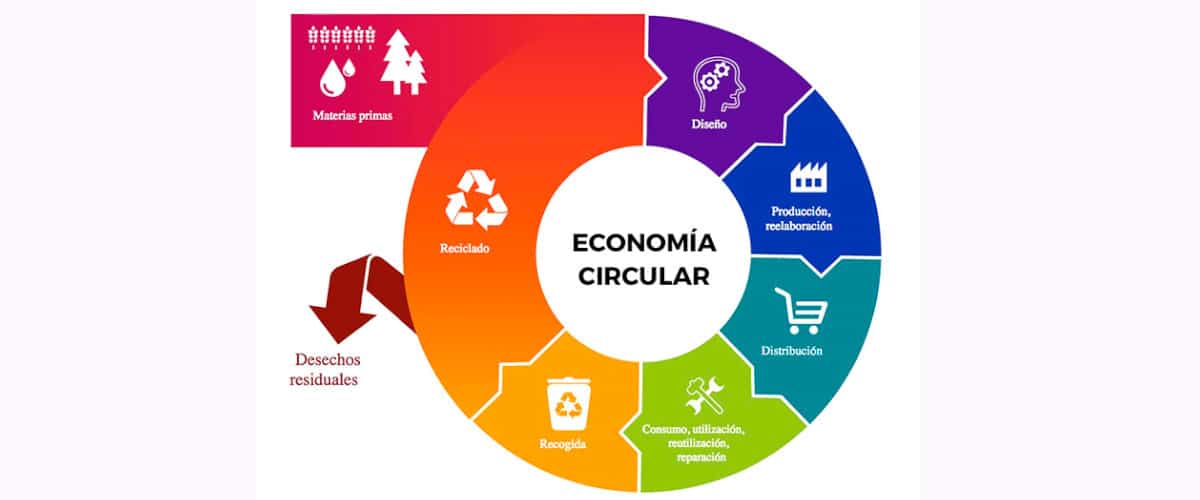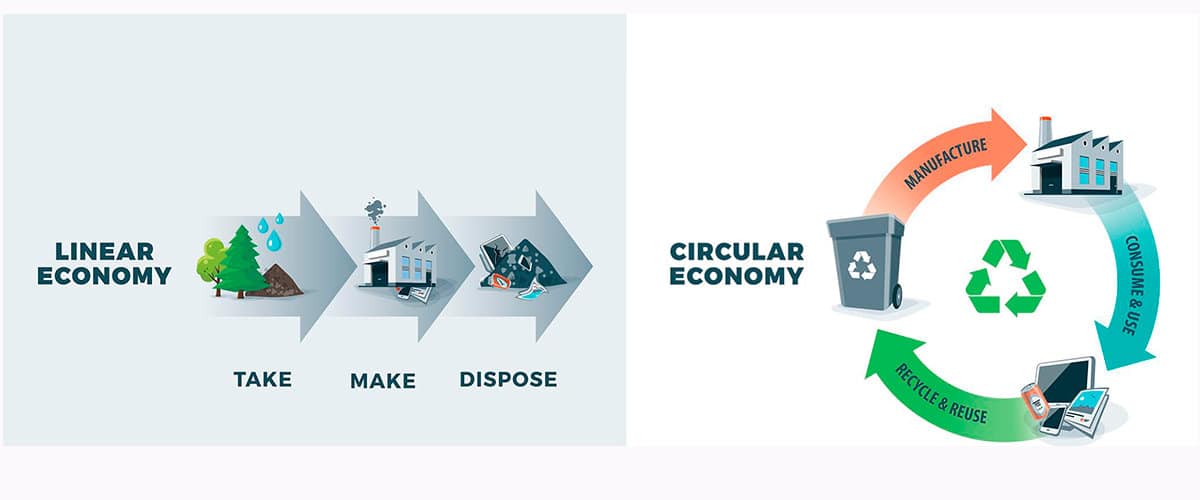
Compared to the current economic model, a linear and aggressive model based on "take-do-discard", the circular economy offers a model that invites extend the life cycle of products, thus reducing the generation of waste and contributing to the preservation of the environment.
The strong dependence on raw materials, the depletion of both material and energy sources of supply and the direct impact on the fight against climate change, make the current model unsustainable. That is why many countries are already traveling towards circularity, adopting new economic strategies. But what exactly is the circular economy and what are its benefits? We talk about it all today.
What is the circular economy?
It is one in which the value of products, materials and resources are kept in the economy for as long as possible. And in which turn waste generation is minimized, thus contributing to achieve a sustainable economy, efficient in the use of resources and competitive.
Driven by design and supported by the use of renewable energy and materials, the circular economy aims to reduce the generation of waste as much as possible and to make the most of waste whose generation could not be avoided. In this way, value is created through sharing, maintenance, reuse and recycling. And then the materials are safely returned to nature, returning the nutrients to the soil and natural ecosystems.
This model revolutionizes the way we design, produce and consume today. China and Europe They are the world leaders in the transition to circularity, from which they could benefit financially. And it is that as some studies suggest, this transition could generate a net economic benefit of 1,8 trillion euros for Europe in 2030. Always, of course, compared to the current scenario.
Services
What are the benefits of this change in model? We understand that reducing the generation of waste and making the most of those whose generation has not been avoided is in itself a great benefit. But we have thought that perhaps, like us, you need more concrete examples of the economic and environmental benefits of the circular economy. So we have anticipated or compiled some:
- The application of the circular economy has a direct impact on the fight against climate change and waste prevention. Changing the way we produce and use steel, cement, aluminum and plastic could reduce greenhouse gas emissions from these industries by up to 40% by 2050.
- Economically, the use of recycled or reused steel for the construction of buildings could in turn generate up to 25% of savings in material costs per ton of steel.
- For its part, the reduction in production and plastic consumption could avoid a third of the global generation of plastic waste by 2040.
- It would provide consumers more durable products and with a higher quality of life. Imagine that mobile phones were easier to disassemble as they were before. The cost of re-manufacturing it could be cut in half. Or that appliances could be repaired, guaranteeing by law a supply of parts for years.
- It would reduce the heavy dependence on raw materials, improving the security of supply that with the pandemic we have seen and continue to see jeopardized.
Have these examples been helpful to you? We hope they have helped you better understand the scope of the circular economy. A model that is essential to adopt to guarantee sustainable consumption and the preservation of the environment.

